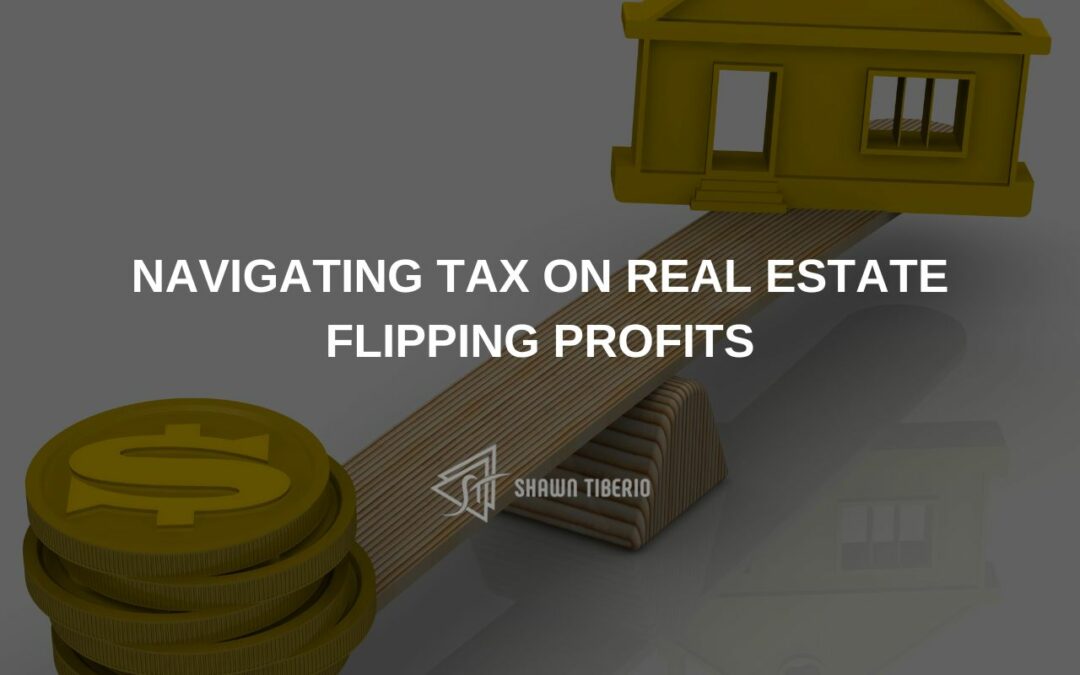When flipping real estate, remember: short term gains are taxed as regular income while long term gains enjoy lower rates. Explore depreciating methods like cost segregation and be cautious of recapture rules. Utilize 1031 Exchanges to defer taxes and enhance your reinvestment capacity. Optimize your holding period strategically to minimize tax liabilities. Track deductible expenses, especially renovation costs. Plan timing for transactions and consider different business structures for advantageous tax outcomes. Manage risks wisely and comprehend state-specific tax laws for maximized profitability. Seek guidance from tax professionals for tailored strategies to enhance your financial position further.
Key Takeaways
- Utilize 1031 exchanges to defer capital gains tax and reinvest efficiently.
- Optimize holding periods to minimize tax liabilities and maximize returns.
- Leverage deductible expenses like renovation costs for tax advantages.
- Implement tailored depreciation strategies for tax efficiency.
- Seek professional tax consultation for effective tax planning and compliance.
Capital Gains Tax Rates
When flipping real estate, you may be subject to different capital gains tax rates depending on how long you hold the property. Understanding the distinction between long term gains and short term gains is vital for managing your tax liabilities effectively.
Short term gains refer to profits made from selling a property that was held for one year or less. These gains are typically taxed at ordinary income tax rates, which can be notably higher than long term capital gains rates.
On the other hand, long term gains are profits from selling a property that was held for more than one year. The tax rates for long term gains are usually lower than those for short term gains, providing an incentive for investors to hold onto properties for a longer period.
The current tax laws offer preferential treatment for long term capital gains, with rates varying based on your income level. For example, individuals in the lower tax brackets may even qualify for a 0% long term capital gains tax rate. However, those in higher income brackets may face rates of 15% or 20%.
It’s essential to take into account these tax implications when strategizing your real estate flipping activities to maximize your after-tax profits.
Understanding Depreciation Rules
To grasp the implications of tax rules on real estate flipping fully, understanding the intricacies of depreciation is essential. Depreciation benefits play an important role in real estate investments, offering tax savings opportunities that can have a major impact on your bottom line. Here are some key points to help you navigate depreciation rules effectively:
- Accelerated Depreciation: Explore the option of accelerated depreciation methods like bonus depreciation and Section 179 deductions to maximize your tax savings in the early years of property ownership.
- Cost Segregation Studies: Consider conducting a cost segregation study to identify specific components of the property that can be depreciated more rapidly, leading to increased tax deductions and cash flow.
- Depreciation Recapture: Be aware of depreciation recapture rules, which may require you to pay taxes on previously deducted depreciation when you sell the property at a profit.
- Depreciation Strategies: Develop tailored depreciation strategies based on the specific characteristics of each property in your real estate flipping portfolio to optimize tax benefits and enhance overall profitability.
Understanding depreciation rules and leveraging them effectively can provide you with valuable tax advantages and improve the financial outcomes of your real estate flipping endeavors. Stay informed, consult with tax professionals when needed, and make the most of depreciation benefits to boost your investment returns.
1031 Exchange Benefits
Consider the benefits of a 1031 exchange for optimizing tax advantages in real estate flipping. A 1031 exchange, named after Section 1031 of the Internal Revenue Code, allows you to defer paying capital gains taxes on the sale of investment properties when you reinvest the proceeds into another similar property. This strategy is particularly advantageous for real estate flippers looking to leverage property appreciation trends to maximize their profits while minimizing tax liabilities.
One of the key benefits of a 1031 exchange is the ability to defer capital gains taxes. By rolling over the proceeds from one property sale into another like-kind property, you can continuously reinvest your profits without triggering immediate tax payments. This can notably increase your buying power and enable you to scale your real estate flipping business more effectively.
Moreover, a 1031 exchange offers flexibility regarding property selection. You can capitalize on property appreciation trends by strategically reinvesting in properties poised for growth. This allows you to take advantage of market conditions and potentially earn higher returns on your investments.
Holding Period Considerations
Exploring the impact of the holding period on tax implications in real estate flipping can provide valuable insights for optimizing your investment strategy. When contemplating the duration for which you hold a property before selling it, several factors come into play that can affect your tax liabilities. Here are some key points to take into account:
- Investment Strategies: The length of time you hold a property can have a profound impact on your tax obligations. Short-term gains are typically taxed at higher rates compared to long-term gains. Hence, it’s essential to align your investment strategy with your tax planning to minimize liabilities.
- Market Trends: Monitoring market trends is essential when deciding on the best holding period. In a rapidly appreciating market, holding onto a property for a longer duration might result in higher gains but also potentially increased tax implications. Conversely, in a declining market, a shorter holding period might be more advantageous.
- Tax Considerations: Understanding the tax implications associated with different holding periods is crucial. Short-term capital gains are taxed at ordinary income rates, while long-term capital gains benefit from preferential tax rates. Evaluating these considerations can help in devising a tax-efficient real estate flipping strategy.
- Strategic Planning: Developing a strategic plan that incorporates holding period considerations can help you navigate the complex tax landscape associated with real estate flipping. By aligning your investment strategy with tax implications, you can optimize your returns and minimize tax liabilities effectively.
Deductible Expenses Insight
Monitoring and classifying deductible expenses is pivotal for maximizing tax advantages in real estate flipping. When it comes to renovation costs analysis, understanding which expenses qualify for tax credits is essential. Renovation costs directly related to enhancing the property can often be deducted, potentially reducing the taxable income from the property sale. It’s critical to keep detailed records of all renovation expenses to support your deductions during tax filing.
Another vital aspect to contemplate is property sale timing and its associated tax consequences. The timing of the property sale can impact the tax implications on your flipping project. For instance, if you sell the property within a year of purchase, you may be subject to short-term capital gains tax rates, which are typically higher than long-term capital gains tax rates. On the other hand, holding the property for more than a year may qualify you for lower tax rates, resulting in significant tax savings.
To make the most of deductible expenses and minimize tax liabilities, it’s advisable to consult with a tax professional or accountant. They can provide tailored advice based on your specific situation and help you navigate the complexities of real estate flipping taxes effectively.
Tax Planning Strategies
Maximizing tax efficiency through strategic planning is essential for optimizing financial outcomes in real estate flipping. When considering tax planning strategies, it’s important to focus on the following key points:
- Timing Strategies: Proper timing of buying and selling properties can have a substantial impact on tax liabilities. Understanding when to realize gains or losses can help you minimize taxes and maximize profits.
- Structuring Options: Choosing the right business structure can have significant tax implications. Whether operating as a sole proprietorship, partnership, LLC, or corporation, each entity type offers different tax advantages and disadvantages.
- Investment Implications: Evaluating the tax consequences of your real estate investments is paramount. Being aware of how each transaction will affect your overall tax position can help you make informed decisions that align with your financial goals.
- Risk Management: Implementing tax planning strategies also involves managing risks associated with real estate flipping. Evaluating potential tax risks and developing mitigation strategies can safeguard your investments and ensure compliance with tax laws.
Passive Activity Loss Rules
When dealing with Passive Activity Loss Rules, it’s important to understand the Passive Loss Limitations and Material Participation Requirements.
These rules determine how much of a real estate investor’s losses can be deducted against their income.
Failing to meet the Material Participation Requirements could result in limitations on the deductions you can claim.
Passive Loss Limitations
Understanding passive loss limitations is essential for real estate flippers seeking to optimize their tax strategies and minimize potential tax liabilities. When maneuvering passive loss rules, consider the following:
- Passive Loss Strategies: Explore ways to offset passive losses against passive income.
- Investment Structuring: Properly structure your real estate investments to meet passive activity rules.
- Passive Income Sources: Identify potential sources of passive income to help absorb passive losses.
- Tax Planning: Strategize with tax professionals to guarantee compliance with passive loss limitations and maximize tax benefits.
Material Participation Requirements
To adhere to passive activity loss rules, real estate flippers must demonstrate significant material participation in their real estate ventures. This entails engaging in active involvement in the operations and management of the properties they own.
The IRS has specific ownership requirements that must be met for real estate activities to be considered non-passive. Real estate professionals need to meet one of the following criteria: participate in the activity for more than 500 hours during the year, be the sole participant in the activity, or surpass the total participation of any other individual.
State-Specific Tax Implications
State-specific tax implications play an important role in determining the overall profitability of real estate flipping ventures. Understanding state specific regulations and tax credits is vital for maximizing your returns. Here are some key points to keep in mind:
- Diverse Tax Structures: Each state has its tax laws and regulations regarding real estate transactions. It’s essential to be aware of the specific tax structures in the state where you’re conducting your flipping business.
- Tax Credits and Incentives: Some states offer tax credits and incentives for real estate investors, including those involved in flipping properties. These credits can have a significant impact on your overall tax liability and profitability.
- Transfer Taxes: Different states have varying transfer tax rates imposed on the sale of real estate. Knowing these rates beforehand can help you accurately calculate your costs and potential profits.
- Local Tax Assessments: Local tax assessments can also vary from one state to another. Being aware of how properties are assessed for tax purposes in a particular state can help you make more informed decisions when selecting properties to flip.
Consultation With Tax Professionals
Considering the complexity of state-specific tax implications for real estate flipping, seeking guidance from tax professionals can provide valuable insights and strategies for maximizing profitability. Tax professionals are well-versed in the nuances of real estate tax laws and can offer tailored advice on tax saving strategies that align with your investment opportunities.
When you consult with a tax professional, they can help you navigate the intricate tax codes relevant to real estate transactions. They can assist you in identifying deductible expenses, such as renovation costs, property taxes, and mortgage interest, which can markedly impact your tax liability. By leveraging their expertise, you can optimize your tax position and enhance your overall return on investment.
Moreover, tax professionals can analyze your specific real estate flipping activities and suggest ways to structure your transactions efficiently from a tax perspective. Whether it’s determining the most tax-efficient ownership structure or utilizing like-kind exchanges to defer capital gains taxes, their recommendations can lead to substantial tax savings over the long term.
Frequently Asked Questions
How Does the Capital Gains Tax Rate Differ for Real Estate Flipping Compared to Other Types of Investments?
When flipping real estate, the capital gains tax rate can vary based on the holding period. Short-term gains (held for less than a year) are typically taxed at ordinary income rates, while long-term gains (held for over a year) are taxed at lower capital gains rates.
Understanding these tax consequences is essential for your investment strategies and tax planning. Consider the timing of your sales to optimize your tax liabilities.
Can You Explain How Depreciation Rules Specifically Apply to Fix-And-Flip Properties?
When flipping properties, depreciation rules can offer you significant tax benefits. Depreciation allows you to deduct the costs of buying and improving a property over time, reducing your taxable income and overall tax liability.
What Are Some Potential Drawbacks or Limitations to Consider When Utilizing a 1031 Exchange for Real Estate Flipping?
When considering utilizing a 1031 exchange for real estate flipping, you should be aware of potential drawbacks and limitations.
Some challenges include strict timelines for identifying and closing on replacement properties, limited property selection, and the requirement to reinvest all sale proceeds.
Additionally, market fluctuations and investment risks can affect the success of your tax strategies through a 1031 exchange.
It’s important to weigh these factors carefully before proceeding with this tax-deferral method.
How Does the Length of Time You Hold a Property Affect the Tax Implications of Flipping Real Estate?
When it comes to the tax implications of flipping real estate, the length of time you hold a property plays a vital role. The holding period directly affects the tax consequences you might face.
Depending on how long you own the property, you could incur different tax liabilities. So, be mindful of the property duration as it can impact the taxes you owe on your real estate flipping endeavors.
Are There Any Commonly Overlooked Deductible Expenses That Real Estate Flippers Should Be Aware Of?
When flipping real estate, you might miss out on commonly overlooked deductible expenses that could maximize your tax benefits.
To avoid this, prioritize understanding tax planning strategies. Seek guidance on common deductions like repair costs, property insurance, and professional fees.
Final Thoughts
As you navigate the complex world of real estate flipping and its tax implications, remember to tread carefully like a skilled tightrope walker balancing between profit and taxes. Seek guidance from tax professionals to avoid pitfalls and maximize your returns.
Just as a sculptor carefully shapes a masterpiece, strategic tax planning can sculpt your financial success in the real estate market. Stay vigilant, stay informed, and watch your investments flourish like a beautifully crafted work of art.












